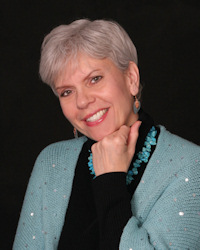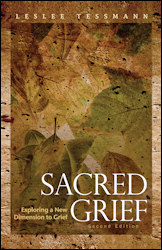Grief
Back to Basics – The Tasks of Grief
BACK TO BASICS: THE TASKS OF GRIEF
by Leslee Tessmann
For whatever reason, based on personal experience or from what they’ve observed or been told, it’s not unusual for people to be of the opinion that grief is something to be endured alone, not spoken about, or dealt with as quickly and painlessly as possible. This simple and practical opinion, has the potential to significantly impact the natural healing that occurs when one completes what has been explored by many professionals and is commonly referred to as the ‘tasks of grief”
With that in mind, I thought it might be helpful to discuss the existence and importance of these tasks and perhaps offer a new reason or motivation to give time and energy to moving through the emotional-and often complex-challenges inherent in one’s grief.
J. William Worden, PhD, a highly-respected and recognized expert in the arena of death, dying, and grief has stated that, “All human growth and development can be seen as influenced by various tasks. These are most obvious when observing child growth and development. There are certain developmental tasks that occur as a child grows. If the child does not complete a task on a particular level, then that child’s adaptation is impaired when trying to complete higher level tasks. Likewise, mourning or grieving—the adaptation to loss—may be seen as involving the four basic tasks listed below. It’s essential that one accomplish these tasks before mourning can be completed.
Uncompleted grief tasks can impair future growth and development. Although the tasks do not necessarily follow a specific order, there is some ordering suggested. For example, you cannot handle the emotional impact of a loss until you first come to terms with the fact that the loss has happened. Since mourning is an ongoing process, the following tasks require effort, so we often speak of a person as doing “grief work”.
Grief work takes time and energy and the reward of such effort is healing and peace. However, it is possible for someone to accomplish some of these tasks and not others and hence have an incomplete adaptation to the loss, just as one might have incomplete healing from a wound.
The four tasks of grief (referenced here as they relate to a death) include:
- Accept the reality of the loss.
- Work through to the pain of the grief
- Adjust to an environment in which the deceased is missing.
- Emotionally relocate the deceased and move on with life.
Some people are able to accomplish these tasks on their own. But in many cases, especially when they involve unusual or complicated circumstances (for example suicide, the death of a child, catastrophic acts of nature such as Hurricane Katrina, and tragic death caused by an act of violence such as 9/11), an environment that supports completing these tasks may be helpful. Although, due to the intense pain that sometimes accompanies grief, we might hesitate to seek out and find such an environment.
Interestingly, most of us go to a doctor when we need medical advice or information. Likewise, we seek out financial advisors when needing assistance or information regarding investing or managing our money. We learn the language of these worlds: mutual funds, risk tolerance, malignant, benign, etc. We allow someone who is skilled at or has some mastery of these environments to help us. We listen to them, answer their questions, discuss our desires and problems, and then choose which aspects of their advice we are going to accept and use.
It’s really no different with grief. Many people use and benefit from grief-related resources. Bereavement counseling is offered by many trained therapists. Most churches, hospitals, medical facilities, and hospice centers offer grief support groups to the public. These groups provide a structure in which people can receive information about the grief process, get feedback about what they’re going through, but most importantly, can offer a safe place to fully express and process grief.
Frequently the one thing that gets in the way of reaching out for this kind of support is the same thing that prevents us from acknowledging our grief—fear. Fear of the pain and the uncertainty of grief’s emotional roller coaster ride.
If you’re someone who suffered a loss, how tightly are you hanging onto your fear? Is it preventing you from acting on your desire for comfort, support, and the healing power of the tasks of grief? Can you let the fear come and go, take a deep breath, and allow yourself to open up to that which will help heal your heart? The quality of your life is at stake here. You deserve to move forward, and as you heal and your life unfolds, the world around you is also blessed and healed.
About the Author
As her story in Sacred Grief describes, a series of challenging circumstances eventually propelled her into a time of self-discovery. The recognition of her alcoholism and ensuring sobriety in 1994 pushed her into her first conscious experience of working with deep, unresolved grief. She became active in Al-Anon and Alcoholics Anonymous (AA) and eventually shared about her recovery at treatment centers, colleges, and
Al-Anon and AA meetings and retreats. Her authentic, straight-forward expression of life before and after recovery was appreciated and acknowledged by audiences. Over time she went on to create and facilitate classes that dealt with working with life on life’s terms, a large part of what Sacred Grief is all about.





